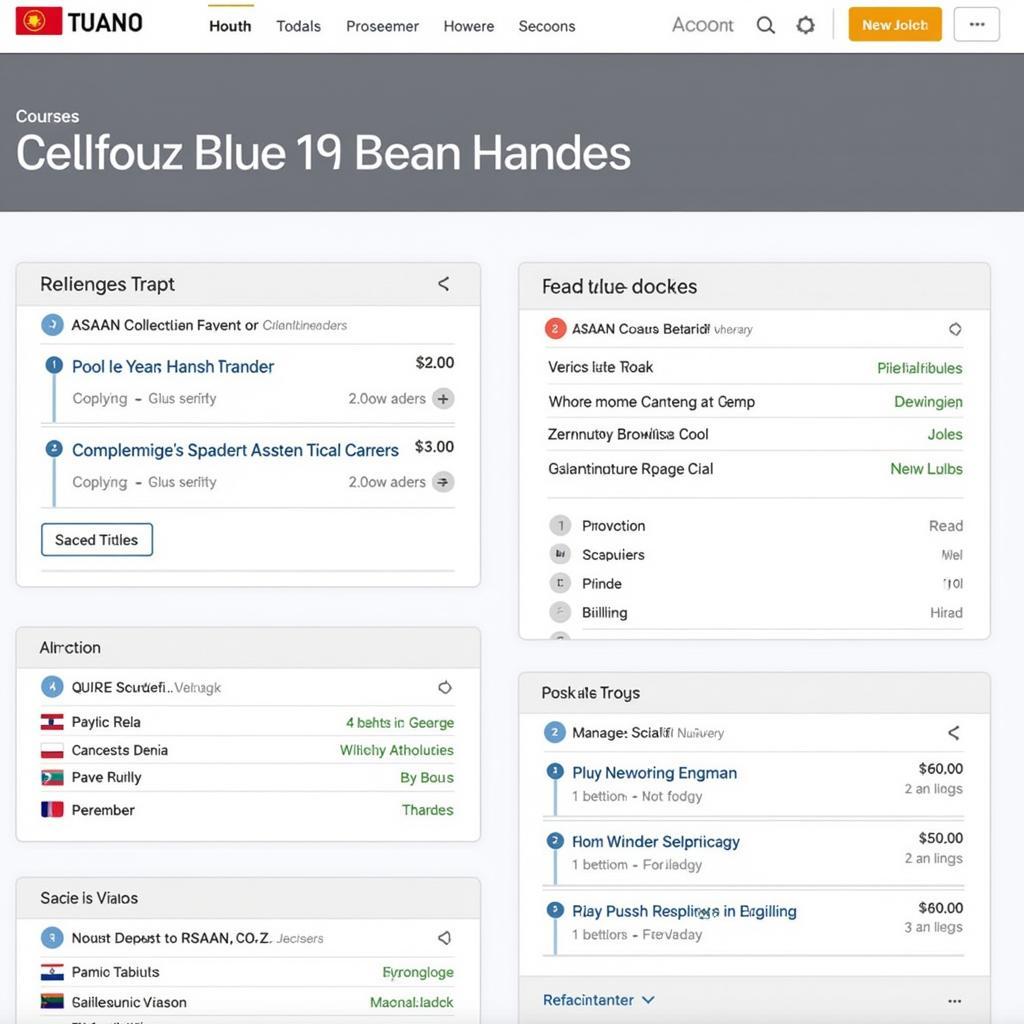The ASEAN region is a vibrant hub for economic growth and development, powered in part by a robust transportation sector. Diesel engines play a crucial role in this sector, powering everything from trucks and buses to ships and generators. To ensure these engines operate efficiently and reliably, regular testing is essential. This article will delve into the world of ASEAN diesel engine testing, providing a comprehensive guide for understanding the process, regulations, and importance of this critical practice.
Understanding ASEAN Diesel Engine Test
Diesel engine testing is a systematic procedure designed to evaluate the performance, emissions, and overall health of a diesel engine. This process involves running the engine under controlled conditions, measuring various parameters, and comparing the results to established standards. The objective is to identify any potential issues, ensure compliance with environmental regulations, and optimize engine performance for maximum efficiency and longevity.
Why is ASEAN Diesel Engine Testing Important?
ASEAN diesel engine testing is vital for a multitude of reasons:
- Environmental Protection: Diesel engines are known for their high emissions, including harmful pollutants like nitrogen oxides (NOx) and particulate matter (PM). Regular testing helps identify and mitigate these emissions, protecting air quality and human health.
- Fuel Efficiency: Proper engine maintenance and timely testing can significantly improve fuel efficiency, reducing operating costs and environmental impact.
- Safety and Reliability: Ensuring engine performance and identifying potential issues through testing safeguards against breakdowns, accidents, and downtime.
- Compliance with Regulations: ASEAN countries have established stringent regulations governing diesel engine emissions and performance. Regular testing ensures compliance with these standards, preventing penalties and legal issues.
ASEAN Diesel Engine Test Standards and Procedures
ASEAN countries have adopted various standards and procedures for diesel engine testing. Some common standards include:
- Euro Standards: These are a series of emission regulations for vehicles, including diesel engines, used by the European Union. Many ASEAN countries have implemented Euro standards to regulate emissions.
- US EPA Standards: The United States Environmental Protection Agency (EPA) has established emission standards for diesel engines in various applications. Some ASEAN countries may refer to these standards as well.
- ASEAN Standards: Specific ASEAN standards for diesel engine testing are also being developed to address the unique needs of the region.
The testing procedures typically involve:
- Engine Preparation: Pre-test preparation includes cleaning the engine, checking fluid levels, and ensuring proper operation of all components.
- Test Cycle: The engine is run through a specific test cycle, simulating various operating conditions, such as acceleration, deceleration, and idling.
- Emissions Measurement: Emissions from the engine are measured using specialized equipment, such as gas analyzers and particulate matter samplers.
- Data Analysis: The collected data is analyzed to determine the engine’s performance, emissions, and compliance with relevant standards.
Common Types of ASEAN Diesel Engine Tests
There are several types of diesel engine tests commonly conducted in ASEAN:
- Emissions Tests: These tests focus on measuring and analyzing engine emissions, including NOx, PM, and other pollutants.
- Performance Tests: These tests evaluate the engine’s power output, torque, fuel consumption, and overall efficiency.
- Durability Tests: These tests are designed to assess the engine’s longevity and resistance to wear and tear under extreme conditions.
- Component Tests: Specific components of the engine, such as injectors, turbochargers, and exhaust systems, are tested individually to ensure their proper function.
Practical Applications of ASEAN Diesel Engine Testing
ASEAN diesel engine testing has a wide range of practical applications:
- New Vehicle Certification: Before new vehicles powered by diesel engines are released to the market, they undergo rigorous testing to ensure compliance with emission and performance standards.
- Periodic Maintenance: Regular testing as part of routine maintenance helps identify and address potential issues early on, preventing major repairs and extending engine life.
- Fleet Management: For businesses operating large fleets of diesel-powered vehicles, regular testing can help optimize fuel consumption, reduce downtime, and ensure regulatory compliance.
- Research and Development: Testing plays a crucial role in research and development efforts, enabling manufacturers to improve engine design, efficiency, and emission reduction technologies.
The Future of ASEAN Diesel Engine Testing
As the ASEAN region continues to develop, the demand for clean and efficient transportation is growing. This trend will drive innovation in diesel engine technology and testing practices. Here are some key trends to watch:
- Advancements in Emissions Control: Technological advancements are leading to cleaner and more efficient diesel engines. Testing methodologies will adapt to evaluate the performance and emissions of these advanced technologies.
- Integration of Digital Technologies: Digital technologies are transforming the automotive industry, including testing practices. Data analytics, predictive maintenance, and remote monitoring are expected to play increasingly important roles in diesel engine testing.
- Focus on Alternative Fuels: The transition towards alternative fuels, such as biofuels and hydrogen, is accelerating. Testing methodologies will be developed to evaluate the performance and emissions of diesel engines utilizing these fuels.
Conclusion
ASEAN diesel engine testing is an essential practice for ensuring environmental protection, fuel efficiency, safety, and regulatory compliance. Understanding the process, standards, and applications of diesel engine testing is vital for individuals, businesses, and policymakers involved in the transportation sector. As the region progresses towards cleaner and more sustainable transportation, advancements in testing technologies and practices will continue to drive innovation and growth.
FAQ
Q: What are the common diesel engine test parameters?
A: Common parameters include engine speed, load, fuel consumption, exhaust gas temperature, NOx emissions, PM emissions, and engine oil temperature.
Q: How often should diesel engines be tested?
A: The frequency of testing depends on factors like engine type, usage, and regulatory requirements. Generally, regular maintenance testing is recommended every 12 months or as per manufacturer guidelines.
Q: What are the penalties for failing diesel engine tests?
A: Penalties for failing diesel engine tests can vary depending on the specific regulations and jurisdiction. Consequences may include fines, vehicle rejection, and even legal action.
Q: Are there any resources for learning more about ASEAN diesel engine testing?
A: Yes, various resources are available, including government websites, industry associations, and online publications.
Contact Us
For any further inquiries or assistance with diesel engine testing, please contact us at:
Phone: 0369020373
Email: [email protected]
Address: Thôn Ngọc Liễn, Hiệp Hòa, Bắc Giang, Việt Nam
Our dedicated team of experts is available 24/7 to provide support and guidance.

